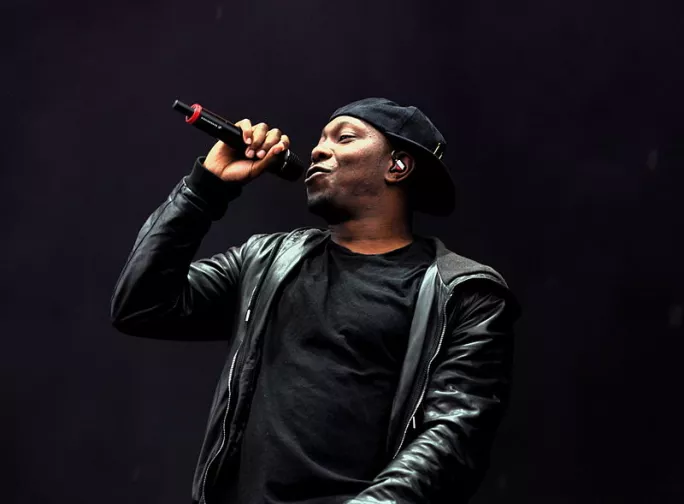‘Why I applaud the inclusion of Russell Brand and Dizzee Rascal in A-level English language’
Alexandra Smith, head of English, Brighton College, writes:
Ofqual’s decision to approve OCR’s A-level English language and literature specification, complete with texts including Caitlin Moran’s Twitter feed, interviews with Dizzee Rascal and Jamie Oliver and Russell Brand’s evidence to a parliamentary select committee discussing his views on drugs, must have seemed like manna from heaven for newspaper editors.
Cue sensational headlines and a storm of scathing posts on online forums, the majority of which are neatly summed up by one particular post on the Daily Mail’s discussion board:
“I can understand the syllabus appealing to the current times and whathaveyou but se4riously!! There are plenty of talented writers and artists alive today who can be studied and would come wayyyy further up the list than these two. Dizzee can barely spin a sentence and Brand is an utter hypocrit!!! What exactly are you trying to teach them!?!?!?!?”
Many an English language student would have a field day unpicking the semantics, pragmatics and grammar of this text, but the sentiment is clear: the likes of Brand and Dizzee Rascal have nothing to teach our children.
Nothing could be further from the truth.
When OCR first published its proposed syllabus back in May, the Department for Education was reported to be horrified, with one source telling The Daily Telegraph : “This is exactly the kind of dumbing down we are trying to get rid of. They must be having a laugh if they think A-levels in Dizzee Rascal and Russell Brand are going to be let through.”
What the department couldn’t seem to grasp then is that students aren’t going to be schooled in the ideologies of these “controversial” figures, rather they are going to be using their spoken and written words as the basis for detailed linguistic analysis.
Brand, Dizzee, Oliver and Moran will appear in an anthology of twenty non-fiction spoken and written texts produced between 1666 and 2014, alongside plenty of more traditional texts such as Samuel Pepys’ account of The Great Fire of London and Jonathan Swift’s A Modest Proposal. The selection provides students with a wide range of forms (including diaries, letters, interviews, speeches and obituaries) and historical contexts, from the 17th century to the present day.
Students will be expected to demonstrate detailed technical understanding of how spoken and written English has been, and continues to be, adapted and manipulated depending on audience, purpose and form.
The anthology is to be studied for one of four examined units, which comprises 16 per cent of the total marks for the qualification. It is entirely appropriate that students study a wide range of material and yes, that material should include the likes of a TV chef and an outspoken Times columnist, people who use and manipulate language every day of their lives to market, persuade, beguile and provoke.
But, the critics sigh, why those people? Why their words? Surely there are more worthy figures out there? Recent changes to the GCSE English literature syllabi, including the removal of American writers and an insistence on romantic poetry, give us an idea of the kind of faces that fit their profile, mainly those of dead, white, British men. So far, lists of A-level texts have not been subject to such censorship, and long may this continue.
Perhaps it’s not actually who is speaking that they are objecting to, but what they’re saying. Charlotte Bronte’s Jane Eyre also features on OCR’s syllabus, but from nowhere has come the suggestion that this honest portrayal of the tribulations of a 19th century governess is unsuitable material for our children, despite the fact that the novel was initially condemned by critics for violating “every code, human and divine”.
It seems that social comment is acceptable as long as it’s studied at a safe historical distance. God forbid that, after reading about Brand’s call for a more compassionate approach to drug addiction, Dizzee’s ideas about Britishness or Moran’s opinions about the treatment of women in the 21st century, rigorous linguistic analysis might be also accompanied by some classroom discussion of the UK’s (failing) drugs legislation or the gender pay gap.
Surely, the notions of equality and understanding aren’t so very controversial? And if, as those opposed to the new syllabus suggest, Brand is a hypocrite, then let’s trust our students to come to that conclusion themselves, rather than patronisingly assuming they believe everything they read.
As with any story about education, everyone’s an expert except the professionals. Exam boards don’t always get it right, as those who are still battling with remarks and appeals will testify. However, on this occasion, OCR has nailed it, presenting a syllabus that is both relevant and challenging. I applaud them.
Related links
Plans to include Dizzee Rascal and Russell Brand in Gove’s ‘more rigourous’ English A-level
Ofqual approves ‘rubbish’ Russell Brand A-level
Keep reading for just £1 per month
You've reached your limit of free articles this month. Subscribe for £1 per month for three months and get:
- Unlimited access to all Tes magazine content
- Exclusive subscriber-only stories
- Award-winning email newsletters




